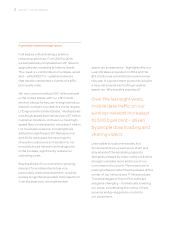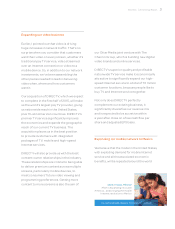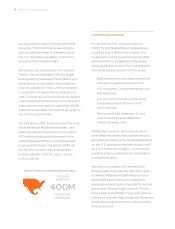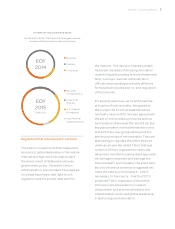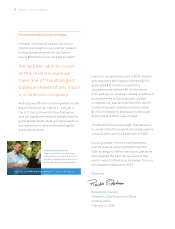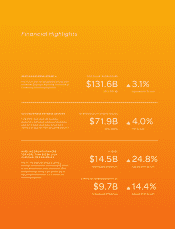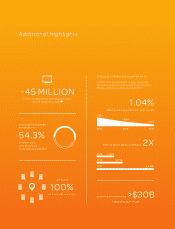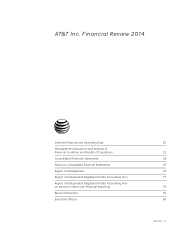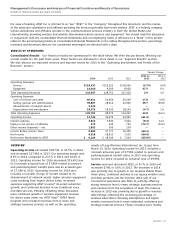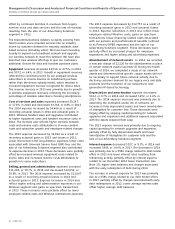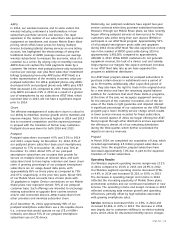AT&T Wireless 2014 Annual Report Download - page 7
Download and view the complete annual report
Please find page 7 of the 2014 AT&T Wireless annual report below. You can navigate through the pages in the report by either clicking on the pages listed below, or by using the keyword search tool below to find specific information within the annual report.
DIVERSIFYING OUR REVENUES
By the end of 2015, AT&T expects its largest revenue
stream will be business (wired and wireless)
AT&T INC.
|
2014 Annual Report 5
Regulation that looks forward, not back
The historic investments that catapulted
America to global leadership in the mobile
Internet and high-tech innovation were
the direct result of deliberate and wise
government policy. Since the Clinton
administration, policymakers have agreed,
on a bipartisan basis, that light-touch
regulation was the proper approach for
the Internet. This decision helped unleash
nearly two decades of amazing innovation
rooted in equally amazing levels of investment.
Now, in a major reversal, administration
officials are proposing a radically different
formula that includes end-to-end regulation
of the Internet
.
For several years now, we’ve endorsed the
principles of net neutrality. We agreed to
them when the FCC first established net
neutrality rules in 2010. We also agreed with
the set of net neutrality principles laid out
by President Obama last fall. We still do. But
key policymakers in the administration and
at the FCC are now going well beyond any
previous concept of net neutrality. They are
attempting to regulate the entire Internet
under an arcane law called Title II that was
written in 1934 to regulate the rotary dial
telephone. We feel this antiquated approach
will damage investment and damage the
Internet itself. I won’t belabor the point here,
but you will see us continue to aggressively
make the case to policymakers – and, if
necessary, to the courts – that the FCC’s
proposed Title II regulation of the entire
Internet is at best a solution in search
of a problem and at worst a threat to the
United States’ continued global leadership
in technology and innovation.
Business
(Wired/Wireless)
Consumer
Mobility
U.S. Video &
Broadband
International
Video & Mobility
EOY
2014
Business
Mobility
Consumer
EOY
2015
EXPECTED




